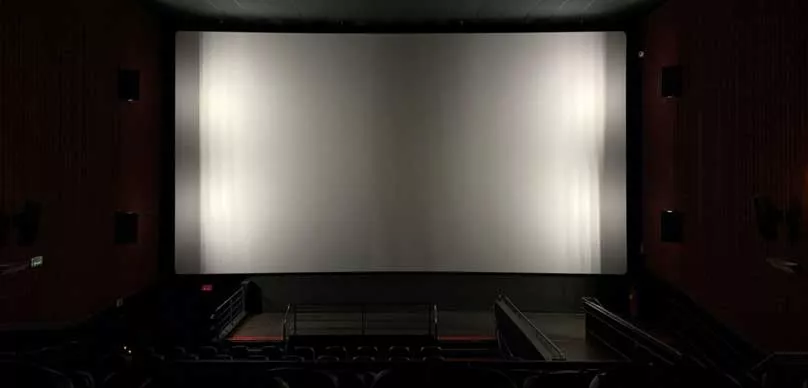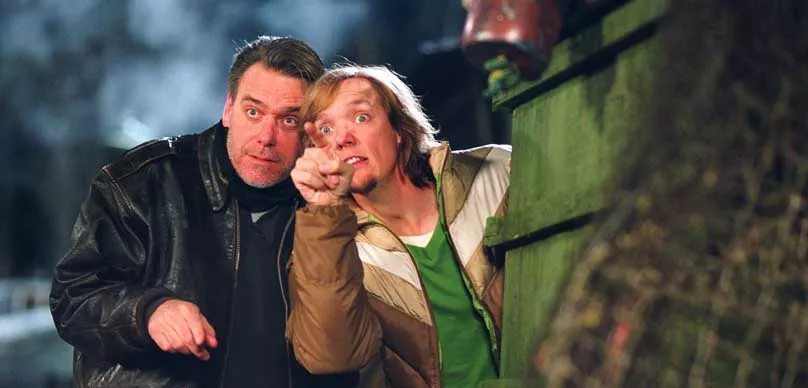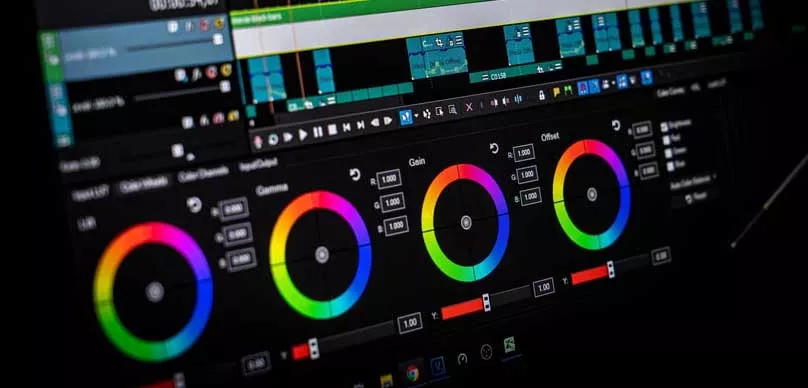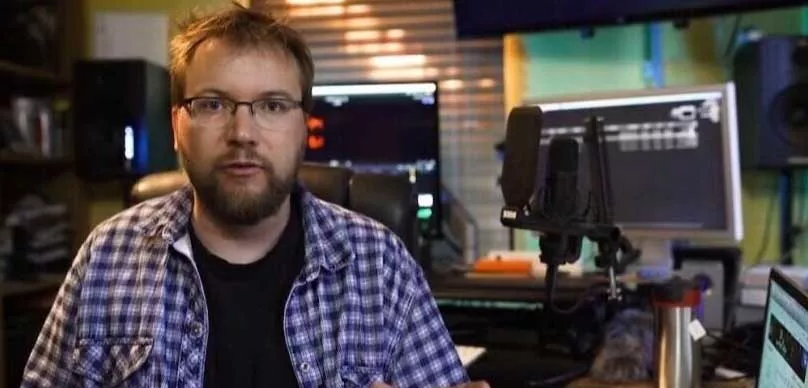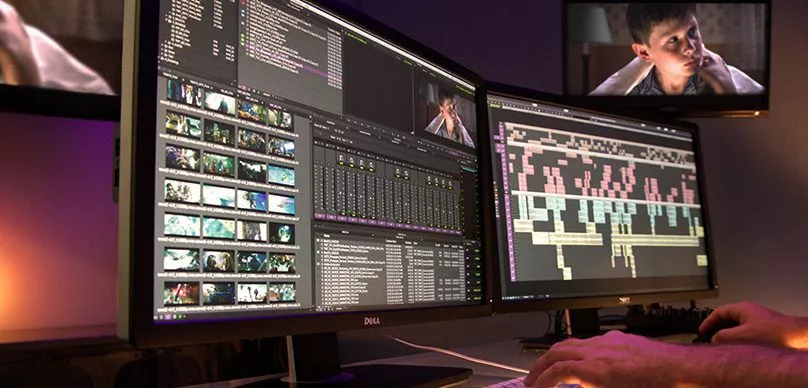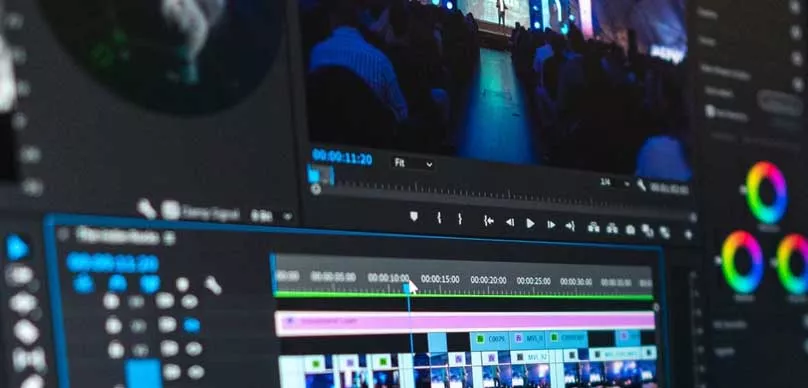How can a VFX Supervisor make your indie film’s VFX shine? I’ve been a VFX Supervisor on multiple feature films, shorts, commercials, and music videos. My job was to get the shots the director wanted to be executed at a very high standard and of course on a budget.
The official definition of visual effects or VFX supervisor is:
VFX Supervisors are responsible for achieving the creative aims of the director and/or producers through the use of visual effects.
Related: Star Wars The Ultimate Visual Effects Breakdowns
Specific responsibilities a VFX Supervisor vary depending on the budget, scope and the nature of the production, however most VFX supervisors:
- Handle a VFX project from the start of the project through to completion
- They oversee the technical, artistic, and production personnel on the visual effect team
- Possess knowledge of various VFX techniques including an emphasis on camera set-ups and film knowledge with an eye for composition and camera work.
- Accurately predict timing and budget associated with the project
- Collaborate with production on the bidding and the negotiation processes
I’ve seen many independent films come through my doors at Numb Robot with VFX dreams in their eye but also with no understanding or budget on how to achieve them; that’s where a good VFX Supervisor comes in.
In this episode I breakdown what a VFX Supervisor does and also the things indie filmmakers need to understand before creating Jurassic World in their backyard.
Right-click here to download the MP3
Alex Ferrari 0:00
So guys, today we're going to talk about visual effects supervisors, and how imperative they are if you're trying to achieve something spectacular on screen. Now I'm going to give you the official definition of a visual effects supervisor, a VFX supervisor is responsible for achieving the creative aims of a director and or producers through their use of visual effects. It's a pretty good definition of them, but there's a lot of things also, the visual effects supervisor do do as well. I've been a VFX supervisor on multiple feature films, working with my top end guys. And I can tell you, there's so much stuff that you have to deal with as being a VFX supervisor as as well as being a post production supervisor. But here are some of the things that a VFX supervisor is responsible for. They handle VFX projects from conception through completion. They manage and direct technical, artistic and production personnel. They possess knowledge of various visual effects techniques, with emphasis on camera setups and film knowledge with an eye uncom composition and camera work accurately predict timing and associated cost of the project. Yeah, there's that's a big one, and collaborate on the bidding and negotiations process with different VFX houses of VFX artists and so on. Now, in regards to indie film, and visual effects supervisors, I've had a ton of films come through the door of my office of of non robot and they're talking about wanting to do visual effects. Now visual effects is a very broad term, it could be something as simple as cleaning out some logos because a production forgot to freak them out. Or it's as big as creating landscapes, so worlds world creation, compositing, you know, starships, explosions, muzzle flashes, all sorts of different things. Every project has different sets of problems, every end challenges for a VFX supervisor. So I'm gonna tell you a quick story on a few things I want you to understand. First, though, before I tell you the story, filmmakers generally especially independent filmmakers who don't understand the workflow of visual effects, or understand how they're even made, they just have the assumption or they've been watching too many behind the scenes videos of how the effects are made at a high level like on the big budget. tentpole movies, I get a lot of filmmakers that come in with big grandiose ideas. And that's fine, that's fine. And that's wonderful. When I did my when I do my films, I usually have big grandiose ideas, too. But I have a plan on how to achieve those grandiose ideas. And that's where a lot of filmmakers fall and fail because they want to have this huge, huge thing but they don't have the budget for it nor the technical know how to even get to that point, I think I told a story with I think it was Dan on episode six, about a filmmaker that came to us a while back that had a Star Wars fan film and it was a huge production he had done so much work his let's say his ego was a little bit bigger than his capabilities, let's say at the time. So what he did is he shot these all this footage and had wire work everywhere in green screen everywhere but had no idea how to prep it or do it properly for visual effects. So when he came to us with it, we were like you've got to be kidding me like the wire work is all over the place. Your green screen has no marks you have a shaky camera so there's no there's no marks so I can't track this. It was basically a waste. He literally had to go back and reshoot all of that stuff because it was just not we weren't able to do it. It was just not feasible even at a big huge budget it would have never come out looking great because he didn't know how to do it properly when he was shooting it and that's one of the A big tip I can give you guys working in visual effects is, you know, make sure that you are prepping this all the way through, make sure you're shooting it properly. And, again, I always just preach about workflow, but it's about that VFX pipeline. So if you're going to shoot something, make sure you understand that that pipeline, that workflow, because if you don't, you just get massacred later on and pose the effects are very, you know, wonderful, powerful thing for a filmmaker. But it's also very dangerous, because if you, you, you roll the dice on your movie success, or even being able to be released on its visual effects, and you can achieve those visual effects your whole project has failed. So perfect example is when I did my short film broken, I had a grandiose, you know, or the ideas of visual effects. And we had multiple meetings with my God, that my visual effects team, Shawn Falcon, and Dan creegan, and Ken Robinson, about what we can and cannot do. And at that meeting, they said, Look, we feel comfortable, we can do this, this, this and this. So I had had backups, you know, like, originally I had, you know, at the time, I really want to do this, like kind of cool slow mo matrix, the bullets flying through the air thing back in 2004. And I wanted to do that, but that was a bit out of our range. So I changed things around a little bit on the day of the shooting. And also, on in post, I was like, You know what, if I'll, we'll go for it, if we can't make it, we have a fallback position. So if I can't make these cool bullets here, I'll cut it this way. And then we'll just do this, this and this to get the effect I want. My point is don't allow your visual effects to you ride the entire your entire movie on whether or not the effects work. Because if it's that important, you better understand the workflow. And you also better have a really good VFX supervisor on board. And that's what a VFX supervisor is there to do. They're there to teach you and to tell you what you can and cannot do going forward on your budget and on your capabilities. So just because you might have an amazing VFX guy, you know, you you have to be able to have a great dp who can shoot properly, you know, you what I was going to talk about green screen. green screen is one of the biggest veins of my existence, though, it's gotten so much easier now to pull greens, you know, the green screen work on multiple different applications. But it still needs to be shot properly. And I've seen my God, I've seen $200 million movies with bad green screen work, that I can see where the comp was done. And I'm like, wow, how do they let that go. So even the biggest the most professional teams have problems with green screen. So imagine you as an independent filmmaker might have as well. So make sure when you're shooting green screen that you have, you have a dp who understands how to light that green screen, preferably have a VFX soup, or VFX artists on set to help you like that, because they'll see things that you won't, I had once a project come to me with four greens in the same screen. Four different greens, not because they lit the green differently. They lit it all the same, but they had four different blankets, green blankets, from all sorts of different things. And they literally taped them together from the back. And I'm like, What is this and it was a moving shot and had some swords and flying and I'm like, You're out of your mind. I can't I can't keep it. My VFX guys looked at me, they're like, You gotta be kidding me. I'm like, I trust me, I know, we're not doing the project. But, but that's a perfect example. They went and they spent all that time shooting, that that scene and they just didn't take the time to understand the technical aspects of what they were trying to achieve. So again, that VFX supervisor will help you do that. A lot of times I'll get a filmmaker come in. And this will be that this will be the way the conversation goes. They'll come in and they'll go, look, did you see that scene in Avengers and I go stop right there. You cannot do visual effects that are in Avengers, your budget of your entire movie might be 50 grand, you know, or maybe 10 grand or 20 grand, and you're trying to achieve something that that cost millions of dollars. It's not feasible. So you have to have realistic goals of what you're trying to do. And even if they're unrealistic goals, which I have worked on projects with filmmakers who had unrealistic goals, but they had a very clear path of how they were going to achieve these unrealistic goals. Because they did their homework. They hired the right people, they got a VFX supervisor on board. And when I say VFX supervisor, it doesn't have to be just a VFX supervisor. Sometimes a really experienced visual effects artist can help you become a VFX supervisor. So basically when we did broken, Shawn Falcon was my VFX supervisor on that because Sean out of all of us at the time, had the most knowledge about the workflow about how to get Things Done. And he defaulted as our VFX soup because he was the most technically knowledgeable guy. And he got some credits as a visual effects supervisor because of it. And now Dan creegan has become a VFX soup on multiple projects as well. And he's actually become VFX leads on bigger, you know, big, huge big, huge movies, as well. So you don't actually need to have to have or hire a specific VFX supervisor, if you can get a really experienced visual effects artists that can handle those responsibilities for you. Another thing that a lot of people in the indie film world don't understand his budget and how much things actually cost to do as far as visual effects are concerned, they have an assumption like, well, we have $5,000, to do this amount of shots, and you're like, well, that's just not feasible, it's new, you're not going to be able to get the quality that you're looking for to do so at that budget range. So understand, and really do your homework before you shoot. If your visual effects are so important to you, in your storytelling process, you have to do the homework on how much these things are going to cost prior to shooting. Because if you if you're again, if your whole movie is based around, like I really need to have this set extension done, or I need to have this landscape created or a cityscape, or I have to have this monster that's going to be the main monster of my movie. If you don't do your homework prior to doing that, and hire visual effects supervisor to kind of help you walk through what's really feasible and what's really not feasible, then you're just going to fall on your face. And it's going to and I don't want that to happen. I always feel so sad when I see filmmakers who put so much energy and time and they kind of spin their wheels because their movies can't be released, or they can't get it done right. Or if they try to do the visual effects that don't look that great. And so please always do your homework to see what any and at any level, you should be doing your homework to see what it's going to cost. And if it's even achievable at the budget range you're talking about. And there's Look, there's a 1000s and 1000s of visual effects artists out there. But you have to find good visual effects artists and a good visual effects supervisor has access to these visual effects artists. And again, the same way the post production supervisor has relationships with post houses to create or to do like deliverables or to create you know, editing houses or whatever, whatever deals have to be done to get post production done. Visual Effects supervisors have that same relationships with different different either visual effects companies, or visual effects artists that are working out of their garage, which I know most of the VFX guys I work with work outside of their garage, but they have huge monsters credits working on big, big multimillion dollar movies. And that's the way things are going nowadays. But I have those relationships as a visual effects supervisor that you don't as an independent filmmaker. So by hiring me or visual effects supervisor, they those people will be able to give you those resources and maybe get your visual effects done at a much more affordable rate. Now the bottom line is a good visual effects supervisor is there to help you achieve your goals and get the thing done at the proper price. And also to get get it at the proper quality, which is the big big problem. One thing that we were very well known for at num robot was muzzle flashes because of our success creating muzzle flashes, unique looking muzzle flashes for for broken and for red princess. And it was a special thing that Shawn did in shake the he actually created a script and it was it wasn't stock, it wasn't like he went off and bought some stock muzzle flashes that didn't work for each and every angle that you were shooting at which is a big problem with with muzzle flashes in general. A lot of filmmakers you know, especially doing action movies which I've done a quite a bit of those kind of movies is they like oh well you know, we can't get real guns on set, we can't get real blanks on set. So we'll just use, you know, we'll just put the muzzle flashes in and pose. And a lot of them will either do it in After Effects, which again, there are great examples of that kind of stuff working or getting stock muzzle flashes and putting them in and comping them in properly. You can get some really good stuff in but I've seen so many bad muzzle flashes, and so many bad visual effects that are from stock collections and things like that, because they're not comped in properly, they're not used properly. And again, a VFX supervisor can guide you a good VFX supervisor can guide you through what to buy and what not to buy. A lot of the stuff that we've done in our projects were stock that we created, but because of the compositing that that our VFX guys were able to do and be able to meld it and make it into our own as opposed to just like oh, there's an explosion, let's just throw an explosion in there. It's a layering of multiple different effects between smoke and things like that to make it look real. And I'm also wanted to talk about practical visual effects and visual effects. So practical visual effects are visual effects that are done or practical effects that are done on set, whether that be explosions, smoke, and so on. So I've always found and this is Very true. And JJ Abrams would agree with me, because this is exactly what he did on the new Star Wars film is that he used a lot of practical effects on set, and then enhance them with visual effects. So explosions, there were some explore, you know, there was explosions on set, and then he would enhance those explosions in post. And then you create this amazing effect that is more realistic and more, more believable than it would be if you just grab some stock explosion and throw it in there or use some sort of particle generator to create fire explosions. If you're able to incorporate some sort of practical elements, it's always better especially with makeup, especially blood hits, muzzle flashes we had with our muzzle flashes in broken, we were able to do we were using airsoft guns with blowback, meaning that every time you pull the trigger, the gun cocked back like a real gun would so it looked like it was injecting shells, but nothing came out. So because we were able to do that it created such a realistic vibe when we put the muzzle flashes on it, that it took our effect to another level. So always keep that in mind. If you are going to do visual effects in your movies, see how much you can do practically first, and then enhance it because you'll be you'll be surprised at how much more affordable practical effects are to do, then visual effects are depending on where you're trying to do. And again, a visual effects supervisor will guide you throughout this entire process. And that's what they're there to do. So I hope you got a little bit of information about how to work with the visual effects supervisor, and how to leverage the relationships that our visual effects supervisor has to achieve the goals the visual effects goals of your independent film. Now if you want to learn a little bit more about the VFX pipeline, and how visual effects works just as a general statement, so you're more educated. We have a course in the indie film, hustle film school online film school, called the VFX, understanding the VFX pipeline, and you could definitely take a look at that it's really affordable. There's always sales going on all the time. So always check back to see if you have you know, we can give you a coupon code, depending on the different sales we have. But it's really really a good course and really breaks down the basics of VFX pipelines and VFX understanding visual effects in general it's it should be mandatory for all filmmakers who are even thinking about doing visual effects to take this course and you can find that course at indie film hustle calm Ford slash film school not a download the Show Notes for this episode head over to indie film hustle calm forge slash zero 34 and don't forget to go to filmmaking podcast comm to leave us an honest review of the show and really helps us out a lot guys. So keep that hustle going keep that dream alive. I'll talk to you soon.
Sign up to receive email updates
Enter your name and email address below and I'll send you periodic updates about the podcast.
YOUTUBE VIDEO
LINKS
SPONSORS
- Bulletproof Script Coverage – Get Your Screenplay Read by Hollywood Professionals
- Audible – Get a Free Filmmaking or Screenwriting Audiobook
- Rev.com – $1.25 Closed Captions for Indie Filmmakers – Rev ($10 Off Your First Order)














